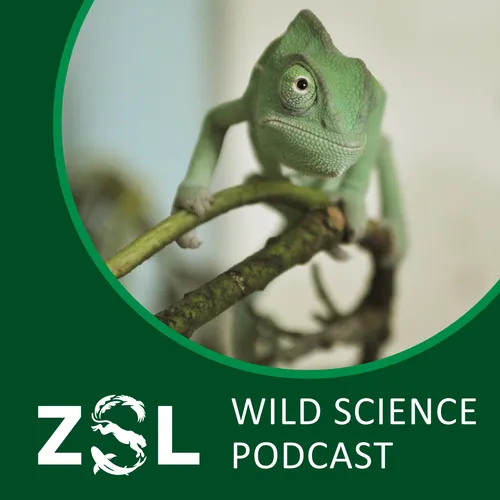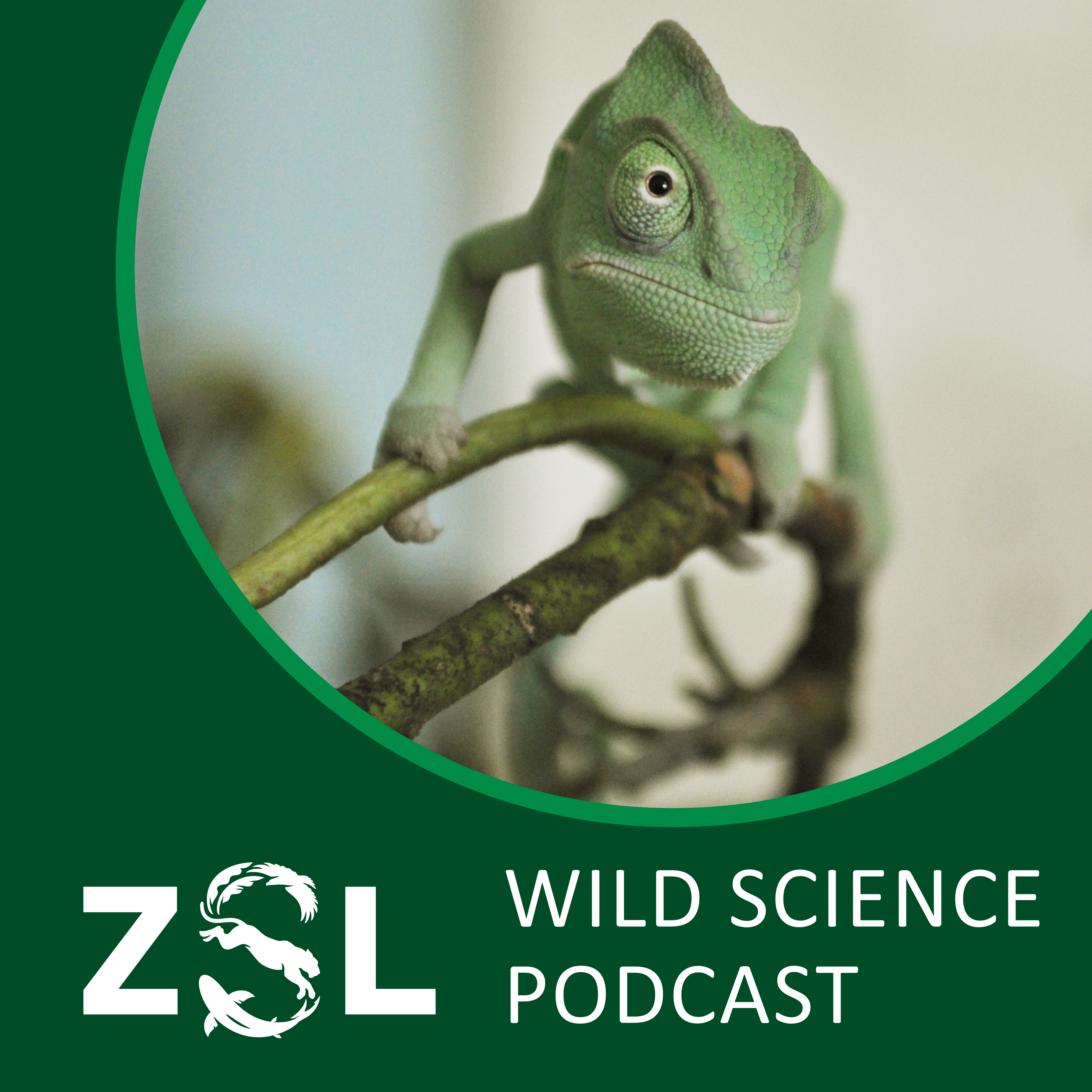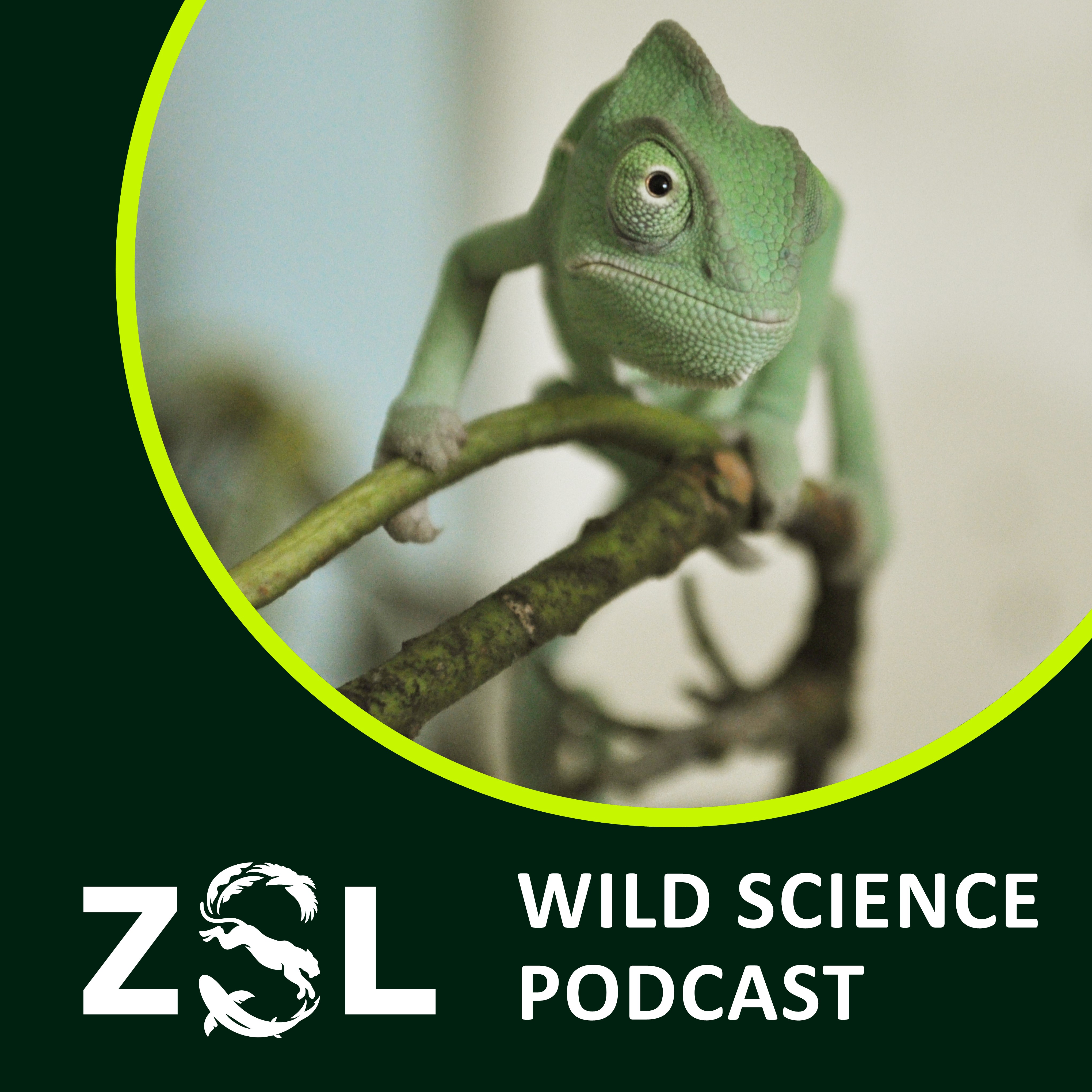
ZSL Wild Science Podcast
Delve into topical issues in zoology, conservation and the environment, from saving species and protecting the planet, to finding out about the animals living across the globe, including in London’s own river Thames. Learn more about the science behind the conservation work being done by ZSL and others, in this podcast from ZSL’s Institute of Zoology. Hosted previously by Dr Monni Böhm and Ellie Darbey, and now by Harriet McAra.
- Update frequency
- every 38 days
- Average duration
- 34 minutes
- Episodes
- 47
- Years Active
- 2018 - 2025

ZSL #048 The rubber story and the road to sustainability
What do car tyres, yoga mats and trainers have in common? They all contain natural rubber, tapped from trees by millions of small farmers, mostly in Asia. While natural rubber production is renewable…

ZSL #047 Shark Tales of North Wales
The coastal waters of Wales are home to a whopping 27 species of sharks, skates and rays, known collectively as elasmobranchs, and they are a fundamental part of Wales’ natural heritage. But even so,…

ZSL #046 Feeding the Zoo: Nutrition for animals under managed care
Making sure that the animals held in ZSL’s two conservation zoos, London and Whipsnade, are fed a diet that can help them thrive is crucial, both for keeping them healthy under managed care, and ens…

ZSL #045 BONUS Nature's Negotiators: Saving the planet one meeting at a time
After our Nature’s Negotiators miniseries, where we learned all about the complexities, challenges and importance of United Nations climate and biodiversity meetings, we wanted to give the gift of a …

ZSL #044 Nature's Negotiators: The UN's Wildest Diplomatic Mission - Part 2
2024 has been a big year for international climate policy, with two UN Conference of Parties, or COPs, taking place in quick succession; COP16 in Colombia followed just a few weeks later by COP29 in …

ZSL #043 Back to the Wild: Assessing disease risks for species reintroduction
What does it take to reintroduce an animal to the wild safely? How do we make sure that disease risk to existing populations, and to the animals being reintroduced, is mitigated?
Hear from the Diseas…

ZSL #042 Nature's Negotiators: The UN's Wildest Diplomatic Mission - Part 1
You may have heard of a COP, and you’ve almost definitely heard of the United Nations (UN), but how much do you know about the negotiations that go into getting nature, climate and biodiversity embed…

ZSL #041 Reimagining Coral Reefs
Out of sight…but not out of mind? Coral reefs exist largely out of sight for the majority of the world’s population, so the vast array of ecosystem services they provide for local communities are of…

ZSL #040 Mammal conservation in Korea: Human-carnivore coexistence on the Korean Peninsula
Co-existence between communities living on the Korean Peninsula and carnivores such as leopards, tigers and black bears, has historically presented many challenges leading to population declines in t…
ZSL #039 Wild Science is back for 2024
The ZSL Wild Science podcast is back! After a break, we have returned to explore even more topical issues in zoology, conservation and the environment. New host, Harriet McAra, Science Communications…

ZSL #037 How can we recover nature in our cities: rewilding, reconnecting habitats and restoring rivers
It’s no secret that cities are generally perceived as spaces of little conservation relevance, yet local urban wildlife underpins a range of ecosystem services. In a time where rapid changes in the c…

ZSL #036 What lies beneath: investigating the amazing world of wildlife pathology
Pathology is the science of diagnosing diseases by observing physical changes in animal cells and tissues, either in living, or more commonly dead animals. In this episode, our host Ellie Darbey will…

ZSL #035 Nature-based solutions - putting nature at the heart of global climate change and biodiversity science-policy agendas
The anthropogenically driven climate crisis and unprecedented rates of biodiversity loss are both threatening the foundations of economies, livelihoods, food security, health and quality of life worl…

ZSL #034 Marine habitat restoration in the UK: tales of oysters, saltmarsh, kelp, and seagrass
Coastal marine habitats are essential to the health of our marine ecosystem, and hold both environmental and social importance. They provide valuable ecosystem services, but for decades they have bee…

ZSL #033 Putting reptiles on the map: ZSL Science for reptilian conservation
Reptiles - lizards, snakes, turtles and crocodilians – make up almost one third of all land vertebrate species on Earth, and also occur in many marine and freshwater systems. Yet despite their amazin…

ZSL #032 Coral reefs: running the gauntlet of climate change
Coral reefs are the most biodiverse marine ecosystems in the world, and more than 500 million people worldwide rely on coral reefs for their livelihoods, food security, and coastal protection. Howeve…

ZSL #031 Habitat loss and human health – understanding the links between ecosystem degradation and infectious disease outbreaks
After more than a year of Covid-19 impacting global populations, health systems and economies, one of the major questions being asked was how did this start, and how can we prevent it from happening …

ZSL #030 Can surveillance technology and social science address rule-breaking and wildlife crime?
Law breaking, such as poaching or fishing inside marine reserves, is a great challenge to conservationists because research is often complicated by ethics and data privacy. However, important technol…

ZSL #029 The future of biodiversity conservation - different dimensions of conservation thinking
Conservationists are working hard to stem global biodiversity loss. Yet, just like biodiversity itself, the conservation movement is very diverse, with a variety of ideas shaping its framing, purpose…

ZSL #028 What's next for rewilding?
Rewilding has emerged as a captivating, but controversial, concept in conservation. Depending on how rewilding is defined, it aims to increase “wildness” of nature, regenerate ecosystem functioning, …